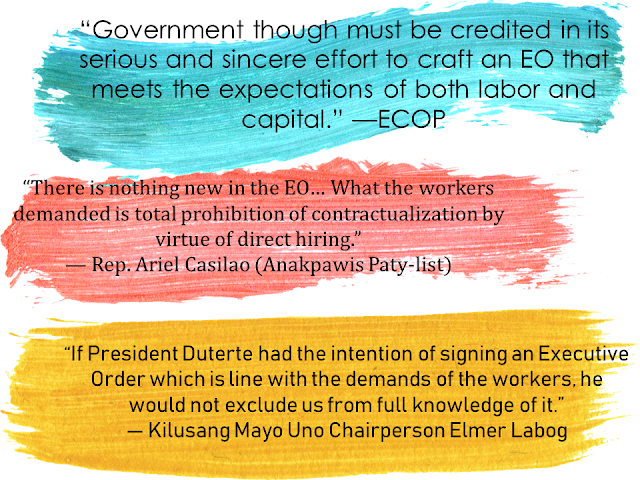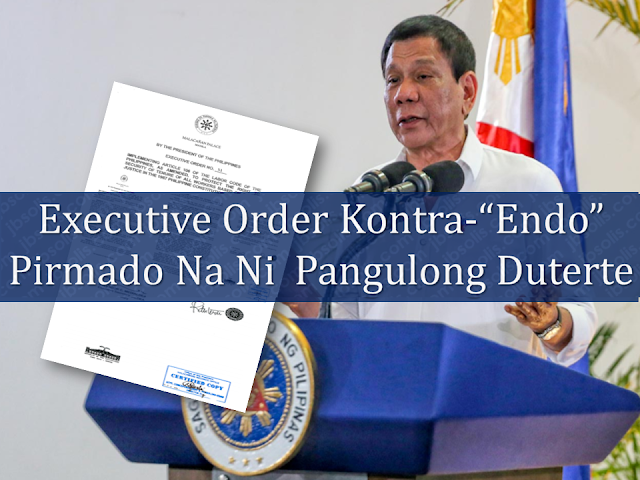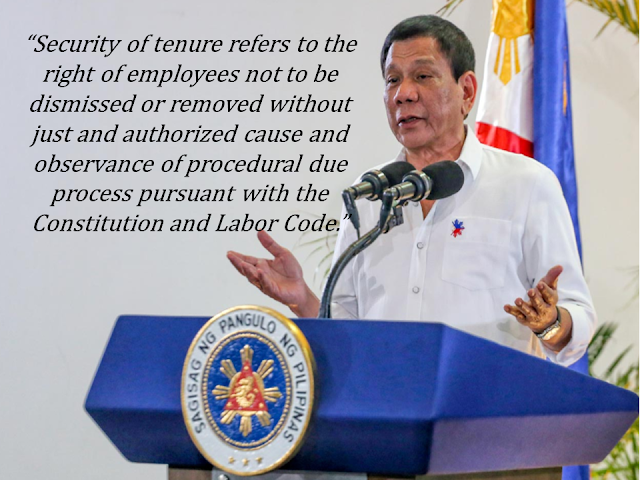As one of his campaign promises, President Rodrigo Duterte signed an executive order seeking to stop contractualization among local workers. The president said that EO 15 prohibits “illegal contracting or subcontracting or undertaking to circumvent the workers’ right to security of tenure.”
Endo system deprives the locally hired workers of benefits that regular employees enjoy as the work contract usually lasts for only five months or less, there will be no end of service benefits even if you renew the said contract over and over again for ten years with the same company.
Endo system deprives the locally hired workers of benefits that regular employees enjoy as the work contract usually lasts for only five months or less, there will be no end of service benefits even if you renew the said contract over and over again for ten years with the same company.
“I remain firm in my commitment to put an end to ‘endo’ and illegal contractualization,” the president said.
Advertisement
Sponsored Links
President Rodrigo Duterte has signed a landmark executive order (EO) that puts an end to illegal contractualization in the Philippines.
Duterte inked the EO on May 1 and made the announcement during a speech in a Labor Day celebration in Cebu.

The president also said that the government will continue to provide “dignified and meaningful employment”, however, he said that the newly signed executive order is not enough to ensure the security of tenure.
“I can only implement but if there are things that need to be corrected, modified to suit the needs or the demand of time… We have to amend or correct or recommend revision or revisit the laws,” Duterte said.
The Palace has yet to release a copy of the EO.
“Endo,” which stems from the term “end of a contract,” refers to the practice of short-term contracts short of six months that would make a worker a regular employee.
The newly signed Executive Order which is yet to be released in public draws different reactions among labor groups.
Various labor groups also regard the newly signed EO as pro-employer.

The KILOS NA Manggagawa, meanwhile, urged the president to show the EO he signed to the public.


